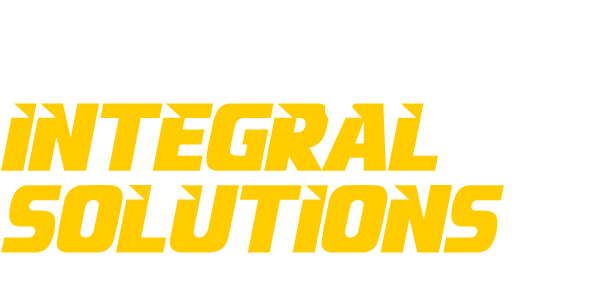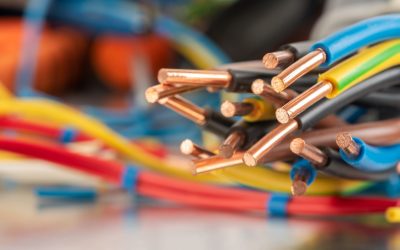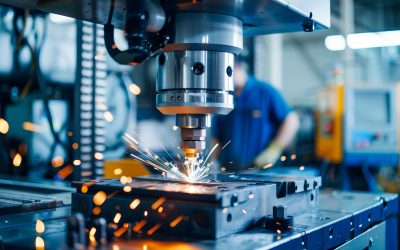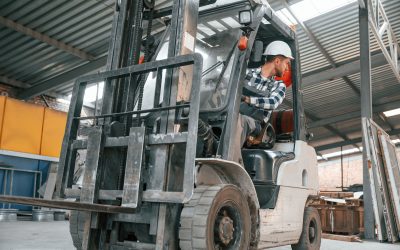Today, companies in different industrial sectors are continually looking for ways to increase productivity, improve efficiency and reduce costs. But within this search, two solutions stand out: one is industrial automation and the other is industrial robots. Although both concepts are closely related, each one has different characteristics and applications, and choosing between one or the other can be a challenge for companies that want to optimize their production processes.
In this blog, we’ll take a closer look at the most important differences between automation and industrial robots, how these technologies can impact production efficiency and quality improvement, and how choosing the right solution can help your company achieve its goals.
What is industrial automation?
Industrial automation is the use of technology to perform specific tasks without direct human intervention. It is implemented in different areas of a production plant to handle repetitive, dangerous or complex tasks more efficiently. Automation uses control systems, such as computers or specialized software, to manage industrial equipment to improve production efficiency and process optimization.
A classic example of automation is an assembly line in an automotive plant. In this context, processes that used to require human operators are now managed by automated systems that execute specific actions with precision and speed.
What is industrial robotics?
Industrial robots, on the other hand, refers to the implementation of robots designed to perform manufacturing tasks in industrial plants. Unlike conventional automation, industrial robots are more versatile and can perform a wider range of activities, from welding to assembly to painting. These robots are programmed to carry out repetitive jobs with millimeter precision, making them ideal for tasks that require high quality standards.
Industrial robots are often integrated into a larger automated system. For example, a robot can handle the assembly of parts on a production line, while an automated system manages the flow of materials and controls the operating parameters.
Key differences between automation and industrial robots
While automation and robotics often overlap in terms of their applications and objectives, there are marked differences between the two technologies:
- Flexibility: Industrial automation tends to be more rigid and is designed for specific tasks. Automated systems are configured to perform a fixed set of operations, which can make them more difficult to adjust to new needs. In contrast, industrial robots are more flexible and can be reprogrammed to perform multiple tasks within the same production environment.
- Task complexity: Automation is used for repetitive and simple tasks, while industrial robotics is ideal for more complex activities that require precision and adaptability.
- Implementation costs: While both technologies have the potential to reduce costs in the long run, industrial robots may require a higher initial investment compared to traditional automation systems. However, robots offer greater quality improvement in applications that demand precision.
- Human interaction: In many cases, automation replaces the need for human intervention in certain processes. Industrial robots, on the other hand, can work collaboratively with human operators, especially in environments where mixed skills are required.
Benefits of automation and robotics for productivity growth
- Increased Productivity: Both industrial automation and robots are designed to increase production efficiency. With automation, repetitive tasks are performed consistently and without human error, reducing downtime and setbacks. Robots, meanwhile, not only maintain a steady pace, but can also work around the clock, maximizing productivity.
- Process Optimization: One of the biggest benefits of implementing these technologies is process optimization. Automation allows companies to eliminate unnecessary manual processes and focus on higher value-added activities. Robots, with their ability to handle complex and precise tasks, ensure that products meet the highest quality standards right from the first time, minimizing rework and defects.
- Cost Reduction: Automation and robots can be costly to implement initially, but the long-term savings are significant. By reducing human intervention, labor costs, errors and material waste are reduced. In addition, both technologies help reduce cycle times and increase production without the need to expand facilities or hire additional staff.
- Quality Improvement: Quality improvement is another important benefit. Automated systems and industrial robots can perform tasks with higher precision and greater consistency than humans, resulting in fewer errors and higher quality end products. This is especially important in industries such as automotive, electronics and pharmaceuticals, where quality standards are strict.
Which option is better for your business?
The decision between implementing automation or industrial robots will depend on the specific needs of your operation. If your primary goal is to improve production efficiency in simple, repetitive tasks, automation may be the right solution. However, if your industry requires a high degree of flexibility, precision and adaptability, then industrial robotics may be the best option.
In many cases, combining the two technologies can be the key to maximizing results. Automation can handle the simpler processes, while robots handle the more complex and critical tasks.
JMN Soluciones Integrales, your Ideal partner for automation and industrial robots
At a time when companies are in a race to complete technological implementation, improving productivity and production efficiency is an important part of any business’ success. The choice between automation and industrial robotics will depend on the specific needs of your operation, but both technologies offer significant advantages in terms of process optimization, cost reduction and quality improvement.
If you are looking for a solution for your plant, JMN Soluciones Integrales is the ideal choice. With years of experience in implementing automation and industrial robotics projects, we offer solutions that are customized to meet the needs of each client. Contact us today to find out how we can help you drive innovation and continuous improvement in your industry.



